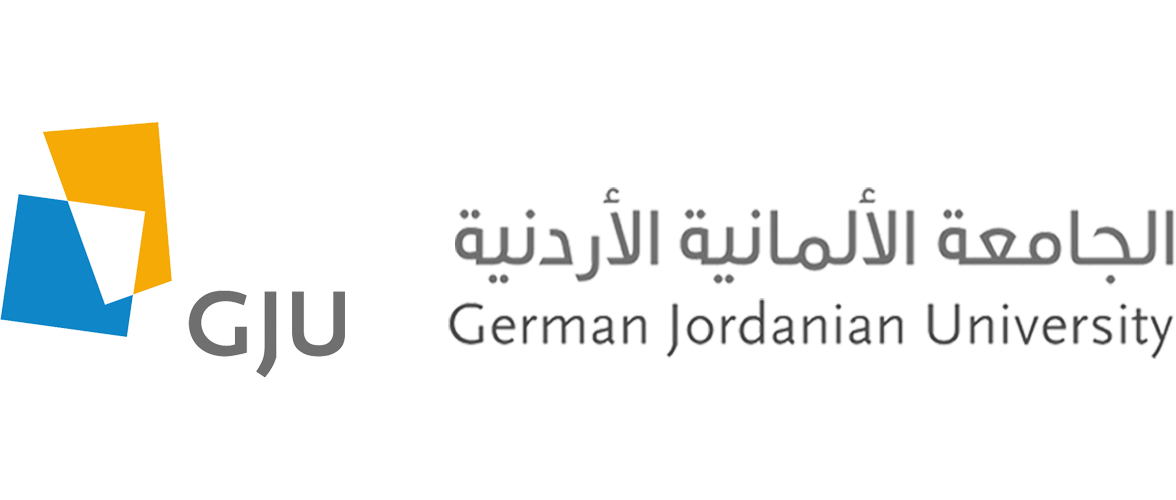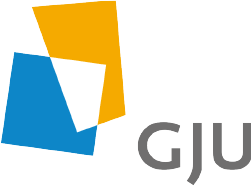New Technologies like Artificial Intelligence (AI), Internet of Things (IOT), Industry 4.0, Additive Manufacturing (3D Printing) and Fintech – Financial Technologies, Blockchain and smart sensors where topics that have been presented at the German Jordanian University (GJU) during a two days’ workshop on “INNOVATIVE APPROACHES ON NEW TECHNOLOGIES IN HIGHER EDUCATION”.
As GJU’s President Prof. Manar Fayyad elaborated in her opening speech, the workshop provided a platform to achieve a progressive implementation of the GJU’s applied and industrial dimension and to gather and disseminate the latest knowledge among presenters and participants from GJU and from industrial partners in Jordan and Germany.
The Vice President Prof. Dorit Schumann emphasized on the importance of an applied education and the German dimension of GJU, which offers various activities for a close and sustainable relationship between the industry and the university
University representatives and their industry partners from Germany introduced successful cooperation projects in the field of Industry 4.0 like the University of Applied Sciences Mittelhessen and STANLEY Engineered Fastening.
The presenters gave an insight about how such cooperation can lead to the establishment of a smart factory lab for the benefit of students, researchers and in order to provide a connection to suppliers and how Industry 4.0 finds its way into different study disciplines through building competence centers. If companies face a challenge, Technology Transfer companies like PRS Technology connect industry with universities to work on innovative solutions, like the integration of fault management into a smart factory. TUM International demonstrated how a cluster approach can foster innovation and facilitate new product development and how a university-industry partnership canvas helps to establish industry demand driven centers like the Siemens Center of Knowledge Interchange.
The workshop participants from Jordanian enterprises, chambers, foundations and GJU professors were engaged in a lively discussion on how such collaborations could enhance digitalization in Jordan and foster a strong engagement of both – the university and industry in common projects. Some of GJU’s professors already implemented such collaboration projects, for example with the establishment of the Nano Lab, within Hybrid Sensor Networks and drones or the Efficient Transmitter Designs. Such projects have a huge potential of connecting with partners in Jordan and Germany even further and foster the universities applied research.
The second day of the event introduced successful New Technology applications in Jordanian companies, such as arabot, where cloud services for intelligent Arabic bots are used to enhance customer experience. Printie 3D provides services to for surgical operations and other medical and industrial applications by using Additive Manufacturing (3D printing) and the digital transformation already started in the manufacturing process of Fine Hygienic Holding. How Blockchain and iris recognition technology provide banking services for the unbanked like in Refugee Camps was impressively shown in the IrisGuard presentation.
In the following World Café ideation session, the participants came up with concrete ideas of collaboration projects in the field of 3D printing, Industry 4.0, Artificial Intelligence and Innovation Clusters. The relevant ideas can be implemented through student competitions and semester projects related to challenges provided by the companies, awareness raising of new technologies through special lectures in these fields and the establishment of smart labs at GJU. It was obvious that focused cluster will help to combine the existing knowledge and come up with common innovative projects, but that still a lot needs to be done to have clear regulations when it comes to patent licensing and university spin-offs.
The participants from Germany, the Jordanian private sector and the university representatives took their “Idea Shopping Cart” back home to their businesses and universities to initiate the next steps to implement the developed project ideas.
The workshop was facilitated with the support of GJU’s Project Office at the University of Applied Sciences Magdeburg-Stendal and the German Academic Exchange Service (DAAD). It was organized by GJU’s Office for Industrial Links (OIL) and its Program Innovation and Entrepreneurship (PIE).
Please find the workshop program here.
Contact at GJU:
Office for Industrial Links (OIL): oil@gju.edu.jo
Program Innovation and Entrepreneurship (PIE): pie@gju.edu.jo

